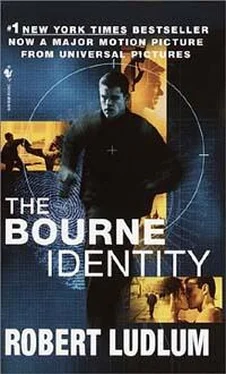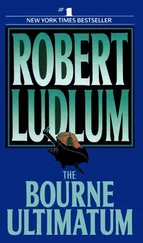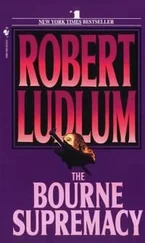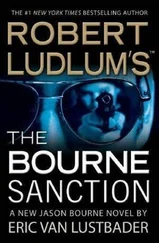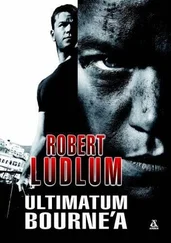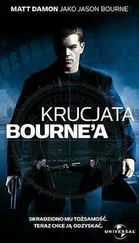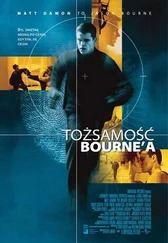The pockmarked beggar scratched the stubble of his beard, took off his threadbare beret and trudged through the bronze doors of the small church in Neuilly-sur-Seine.
He walked down the far right aisle under the disapproving glances of two priests. Both clerics were upset; this was a wealthy parish and, biblical compassion notwithstanding, wealth did have its privileges. One of them was to maintain a certain status of worshiper—for the benefit of other worshipers—and this elderly, disheveled derelict hardly fit the mold.
The beggar made a feeble attempt to genuflect, sat down in a pew in the second row, crossed himself and knelt forward, his head in prayer, his right hand pushing back the left sleeve of his overcoat. On his wrist was a watch somewhat in contradistinction to the rest of his apparel. It was an expensive digital, the numbers large and the readout bright. It was a possession he would never be foolish enough to part with, for it was a gift from Carlos. He had once been twenty-five minutes late for confession, upsetting his benefactor, and had no other excuse but the lack of an accurate timepiece. During their next appointment, Carlos had pushed it beneath the translucent scrim separating sinner from holy man.
It was the hour and the minute. The beggar rose and walked toward the second booth on the right. He parted the curtain and went inside.
“Angelus Domini.”
“Angelus Domini, child of God.” The whisper from behind the black cloth was harsh. “Are your days comfortable?”
“They are made comfortable …”
“Very well,” interrupted the silhouette. “What did you bring me? My patience draws to an end. I pay thousands—hundreds of thousands—for incompetence and failure. What happened in Montrouge? Who was responsible for the lies that came from the embassy in the Montaigne? Who accepted them?”
“The Auberge du Coin was a trap, yet not one for killing. It is difficult to know exactly what it was. If the attaché named Corbelier repeated lies, our people are convinced he was not aware of it. He was duped by the woman.”
“He was duped by Cain! Bourne traces each source, feeding each false information, thus exposing each and confirming the exposure. But why? To whom? We know what and who he is now, but he relays nothing to Washington. He refuses to surface.”
“To suggest an answer,” said the beggar, “I would have to go back many years, but it’s possible he wants no interference from his superiors. American Intelligence has its share of vacillating autocrats, rarely communicating fully with each other. In the days of the cold war, money was made selling information three and four times over to the same stations. Perhaps Cain waits until he thinks there is only one course of action to be taken, no differing strategies to be argued by those above.”
“Age hasn’t dulled your sense of maneuver, old friend. It’s why I called upon you.”
“Or perhaps,” continued the beggar, “he really has turned. It’s happened.”
“I don’t think so, but it doesn’t matter. Washington thinks he has. The Monk is dead, they’re all dead at Treadstone. Cain is established as the killer.”
“The Monk?” said the beggar. “A name from the past; he was active in Berlin, in Vienna we knew him well, healthier for it from a distance. There’s your answer, Carlos. It was always the Monk’s style to reduce the numbers to as few as possible. He operated on the theory that his circles were infiltrated, compromised. He must have ordered Cain to report only to him. It would explain Washington’s confusion, the months of silence.”
“Would it explain ours? For months there was no word, no activity.”
“A score of possibilities. Illness, exhaustion, brought back for new training. Even to spread confusion to the enemy. The Monk had a cathedralful of tricks.”
“Yet before he died he said to an associate that he did not know what had happened. That he wasn’t even certain the man was Cain.”
“Who was the associate?”
“A man named Gillette. He was our man, but Abbott couldn’t have known it.”
“Another possible explanation. The Monk had an instinct about such men. It was said in Vienna that David Abbott would distrust Christ on the mountain and look for a bakery.”
“It’s possible. Your words are comforting; you look for things others do not look for.”
“I’ve had far more experience; I was once a man of stature. Unfortunately I pissed away the money.”
“You still do.”
“A profligate—what can I tell you?”
“Obviously something else.”
“You’re perceptive, Carlos. We should have known each other in the old days.”
“Now you’re presumptuous.”
“Always. You know that I know you can swat my life away at any moment you choose, so I must be of value. And not merely with words that come from experience.”
“What have you got to tell me?”
“This may not be of great value, but it is something. I put on respectable clothes and spent the day at the Auberge du Coin. There was a man, an obese man—questioned and dismissed by the Sûreté—whose eyes were too unsteady. And he perspired too much. I had a chat with him, showing him an official NATO identification I had made in the early fifties. It seems he negotiated the rental of an automobile at three o’clock yesterday morning. To a blond man in the company of a woman. The description fits the photograph from Argenteuil.”
“A rental?”
“Supposedly. The car was to be returned within a day or so by the woman.”
“It will never happen.”
“Of course not, but it raises a question, doesn’t it? Why would Cain go to the trouble of obtaining an automobile in such a fashion?”
“To get as far away as possible as rapidly as possible.”
“In which case the information has no value,” said the beggar. “But then there are so many ways to travel faster less conspicuously. And Bourne could hardly trust an avaricious night clerk, he might easily look for a reward from the Sûreté. Or anyone else.”
“What’s your point?”
“I suggest that Bourne could have obtained that car for the sole purpose of following someone here in Paris. No loitering in public where he might be spotted, no rented cars that could be traced, no frantic searches for elusive taxis. Instead, a simple exchange of license plates and a nondescript black Renault in the crowded streets. Where would one begin to look?” The silhouette turned. “The Lavier woman,” said the assassin softly. “And everyone else he suspects at Les Classiques. It’s the only place he has to start. They’ll be watched, and within days—hours perhaps—a nondescript black Renault will be seen and he’ll be found. Do you have a full description of the car?”
“Down to three dents in the left rear fender.”
“Good. Spread the word to the old men. Comb the streets, the garages, the parking lots. The one who finds it will never have to look for work again.”
“Speaking of such matters …”
An envelope was slipped between the taut edge of the curtain and the blue felt of the frame. “If your theory proves right, consider this a token”
“I am right, Carlos.”
“Why are you so convinced?”
“Because Cain does what you would do, what I would have done—in the old days. He must be respected.”
“He must be killed,” said the assassin. “There’s symmetry in the timing. In a few days it will be the twenty-fifth of March. On March 25, 1968, Jason Bourne was executed in the jungles of Tam Quan. Now, years later—nearly to the day—another Jason Bourne is hunted, the Americans as anxious as we are to see him killed. I wonder which of us will pull the trigger this time.”
“Does it matter?”
Читать дальше
